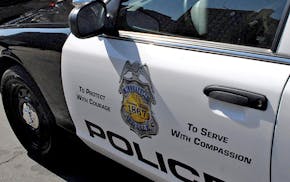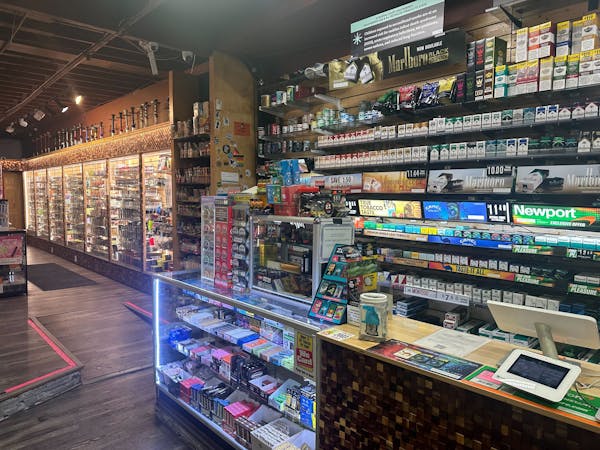A day after the city of Minneapolis released a database containing more than 2 million license plate scans, Mayor R.T. Rybak took rare action aimed at shielding the data from the public.
The Legislature is already expected to debate legislation this session to restrict public access to license plate tracking data, which is largely derived from cameras mounted on local police squad cars across the state. But after complying with a request for Minneapolis' entire public database -- featuring dates, times and locations of all plates scanned in a 90-day period -- Rybak asked the state for a temporary reclassification that would immediately make it nonpublic.
License plate readers are commonly used by law enforcement agencies to spot wanted vehicles in real time. But the cameras also store the location of each plate, without names or other identifiable information, creating databases that are currently public under state law.
He said the reclassification request was "already in the works" before Tuesday's data release, but "it does concern me." His request will make the data nonpublic as soon as it is received by the Commissioner of Administration. That office had not received it as of Thursday afternoon.
If the commissioner approves, it would prevent the city from releasing the tracking data to members of the public. If the request is denied, the data becomes public again.
More than 80 requests have poured into the city since the Star Tribune first reported on the topic in August.
The mayor asked the city attorney to start working on the reclassification request Tuesday. Once it is sent, the commissioner has 45 days to make a decision and may decide it also applies to other government entities.
Rybak said the issue became clear to him after reading Star Tribune stories, one of which documented his own vehicle's locations throughout the city.
"One of the unintended consequences of adding these cameras was we were collecting data that -- through the way information becomes public in this state -- was making it possible for personal information to get out there," Rybak said.
The city has since reduced the length of time it keeps license plate tracking data from one year to 90 days. Rybak still expects the Legislature to act on the issue next session, making the data private.
"We're trying to step in and do something short-term," Rybak said. "But the real fix is at the Legislature."
The database that was released this week contains about 2.1 million reads on about 621,000 unique plates, according to Arthur D'Antonio III, who works in Web startups in California and was one of the people who requested the database. Many of the locations were redacted because they would reveal the locations of the city's stationary cameras. D'Antonio said he would like to somehow create value from the data set, but doesn't know how to do that yet.
Seven people altogether requested and received it, including a Star Tribune reporter, a web developer and a researcher at the University of Minnesota.
Rybak's move came the same day that a panel of state commissioners, judges and other legal officials endorsed a plan for the Legislature to reclassify the data as private. They voted against a task force recommendation that agencies must purge the data after 180 days, however.
Privacy advocate Rich Neumeister, who sits on that task force, questions why police retain any data that is not a "hit." Privatizing it only eliminates a layer of scrutiny over the technology, he says.
"With it being private, there's no accountability and transparency of how law enforcement will use this kind of data," Neumeister said.
Eric Roper • 612-673-1732 Twitter: @StribRoper

Cigarettes at $15 per pack? Minneapolis might do it.
13-year sentence for unlicensed driver who fatally hit motorist while fleeing police in Oakdale

Record delayed but not denied, southern MN softball coach keeps winning

Two charged in north Minneapolis drive-by shooting that injured three
![St. Louis County Board approved a plan to distribute $24 million in CARES funding, including $6 million to be distributed to small businesses. ] ALEX](https://arc.stimg.co/startribunemedia/ED62G7Y2RWISNRUZQRT3ZTJVHU.jpg?h=91&w=145&fit=crop&bg=999&crop=faces)
